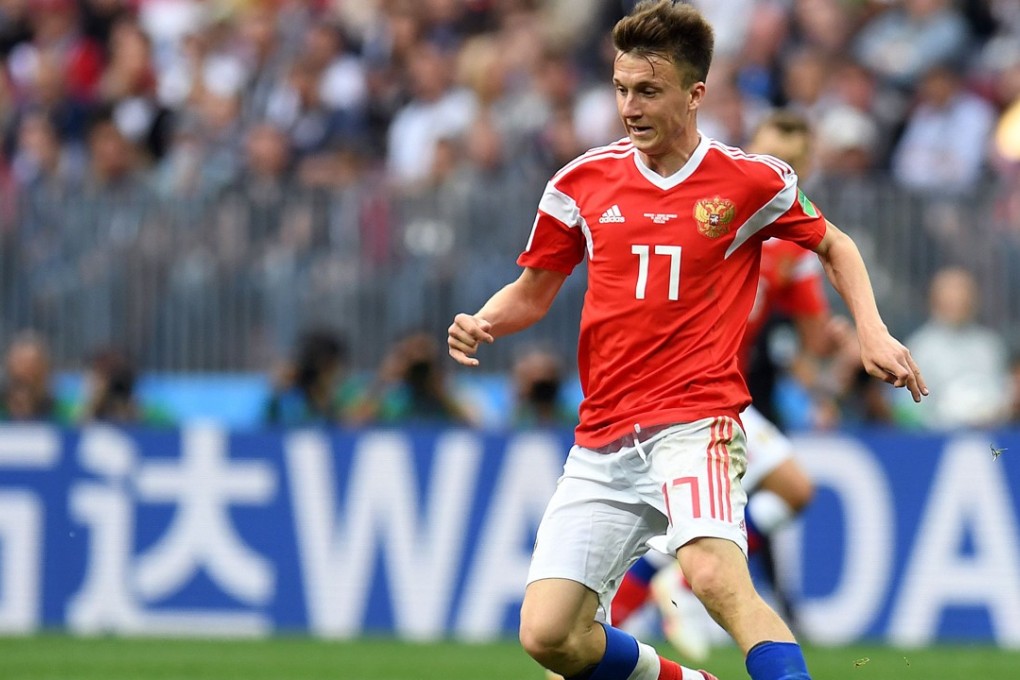Fifa World Cup 2018 works wonders for Wanda with hundreds of millions watching Russia v Saudi Arabia
Chinese companies have helped Fifa steady the financial ship after corruption scandal scared off some Western backers

China’s players won’t be kicking a ball in Russia over the next four weeks, but there will still a huge mainland presence in the World Cup stadiums – on the advertising hoardings surrounding the pitch.
If you were able to divert your eyes away from hosts Russia putting five goals past Saudi Arabia at the Luzhniki Stadium in Moscow during Thursday’s opening game, you may have noticed the Wanda branding plastered all over the place.
As one of Fifa’s seven official partners, China’s biggest commercial property company was advertised to a global audience of several hundred million along with Adidas, Gazprom, Qatar Airways, Visa, Coca Cola and Hyundai/Kia.
The World Cup offers incredible exposure, with the 2014 tournament reaching 3.2 billion viewers, including the 1 billion who tuned in for the final between Germany and Argentina.
Chinese companies dominate the official sponsorship for the 2018 World Cup, too – smartphone developer Vivo, dairy giants Mengniu and fridge maker Hisense make up three of the tournament’s five sponsors.
Mengniu has exclusive rights to sell yogurt drinks and ice cream inside the stadiums, and has hired Lionel Messi to front its World Cup advertising campaign.